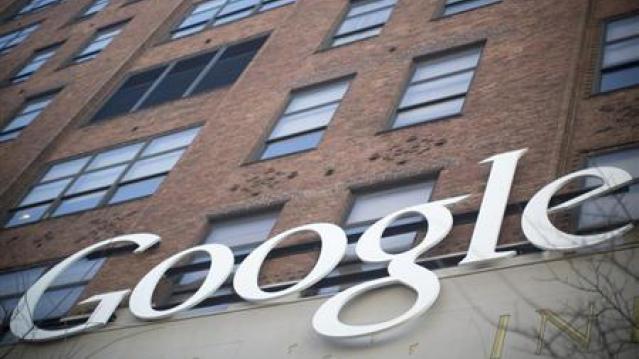Coming Soon: Free Wi-Fi From Google’s Sidewalk Labs
Google’s latest startup wants to use technology to improve city life.

Google is about to hit the streets with Sidewalk Labs, a Google startup that will focus on developing new technologies to improve urban life. Billing itself as an “urban innovation company,” Sidewalk Labs was founded to tackle urban problems such as housing, pollution, energy consumption, and transportation with the goal of making cities “more efficient, responsive, flexible and resilient.”
The first project? In New York City, LinkNYC will replace aging pay phones with slim, aluminum pillars that provide free high-speed Wi-Fi. The hubs also will allow people to charge their mobile devices and look up directions on touch screens. Qualcomm will be the wireless provider
Related: Why Google’s Internet Balloons May Be a $10 Billion Business
According to the Federal Communications Commission, 17 percent of the population, or 55 million people, in the United States don’t have access to high-speed broadband. Sidewalk Labs hopes that projects like LinkNYC can help bridge that gap.
For the LinkNYC initiative, Google acquired and merged two companies -- Control Group and Titan -- into a new venture called Intersection, which aims to provide free, public Wi-Fi in cities around the world using such familiar urban infrastructure as bus stops and pay phones.
Related: Google Spends More Than Any Other Tech Giant to Influence Congress
Daniel L. Doctoroff, a former Bloomberg CEO and deputy mayor for New York City, has been tapped to head Sidewalk Labs. Doctoroff, who conceived the idea for Sidewalk Labs with a Google team headed by CEO Larry Page, told Wired, “The vision really is to make cities connected places where you can walk down any street and have access to free ultra high speed Wi-Fi. The possibilities from there are just endless.”
Just don’t give us any automated, self-driving taxis, please.
Tweet of the Day: The Black Hole of Big Pharma

Billionaire John D. Arnold, a former energy trader and hedge fund manager turned philanthropist with a focus on health care, says Big Pharma appears to have a powerful hold on members of Congress.
Arnold pointed out that PhRMA, the main pharmaceutical industry lobbying group, had revenues of $459 million in 2018, and that total lobbying on behalf of the sector probably came to about $1 billion last year. “I guess $1 bil each year is an intractable force in our political system,” he concluded.
Warren’s Taxes Could Add Up to More Than 100%

The Wall Street Journal’s Richard Rubin says Elizabeth Warren’s proposed taxes could claim more than 100% of income for some wealthy investors. Here’s an example Rubin discussed Friday:
“Consider a billionaire with a $1,000 investment who earns a 6% return, or $60, received as a capital gain, dividend or interest. If all of Ms. Warren’s taxes are implemented, he could owe 58.2% of that, or $35 in federal tax. Plus, his entire investment would incur a 6% wealth tax, i.e., at least $60. The result: taxes as high as $95 on income of $60 for a combined tax rate of 158%.”
In Rubin’s back-of-the-envelope analysis, an investor worth $2 billion would need to achieve a return of more than 10% in order to see any net gain after taxes. Rubin notes that actual tax bills would likely vary considerably depending on things like location, rates of return, and as-yet-undefined policy details. But tax rates exceeding 100% would not be unusual, especially for billionaires.
Biden Proposes $1.3 Trillion Infrastructure Plan

Joe Biden on Thursday put out a $1.3 trillion infrastructure proposal. The 10-year “Plan to Invest in Middle Class Competitiveness” calls for investments to revitalize the nation’s roads, highways and bridges, speed the adoption of electric vehicles, launch a “second great railroad revolution” and make U.S. airports the best in the world.
“The infrastructure plan Joe Biden released Thursday morning is heavy on high-speed rail, transit, biking and other items that Barack Obama championed during his presidency — along with a complete lack of specifics on how he plans to pay for it all,” Politico’s Tanya Snyder wrote. Biden’s campaign site says that every cent of the $1.3 trillion would be paid for by reversing the 2017 corporate tax cuts, closing tax loopholes, cracking down on tax evasion and ending fossil-fuel subsidies.
Read more about Biden’s plan at Politico.
Number of the Day: 18 Million

There were 18 million military veterans in the United States in 2018, according to the Census Bureau. That figure includes 485,000 World War II vets, 1.3 million who served in the Korean War, 6.4 million from the Vietnam War era, 3.8 million from the first Gulf War and another 3.8 million since 9/11. We join with the rest of the country today in thanking them for their service.
Chart of the Day: Dem Candidates Face Their Own Tax Plans

Democratic presidential candidates are proposing a variety of new taxes to pay for their preferred social programs. Bloomberg’s Laura Davison and Misyrlena Egkolfopoulou took a look at how the top four candidates would fare under their own tax proposals.


